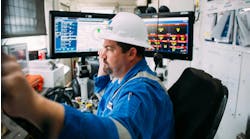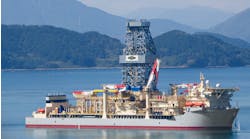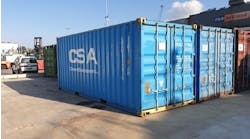Academic partnerships and training are key to industry recruitment and retention
It is ironic that, despite the slowdown and the offloading of jobs over the past few years, the oil and gas industry is facing a potential skills shortage as well as - perhaps more understandably - a morale and reputational issue both inside and outside.
Some of the recent figures are stark. In a survey of 1,200 young Americans by EY, 62% of 16 to 19 year olds said a career in oil and gas was ‘unappealing’; a Rigzone poll found that only 34% of workers are happy with their current oil and gas employment; and the recent low number of applicants pursuing petroleum degrees at Norwegian universities demonstrate that the oil and gas industry is no longer among the first choice career paths.
From being put off by the ‘boom and bust’ nature of the market to a change in young people’s attitude toward social responsibility and cleaner technologies, it’s clear that the oil and gas industry needs to ‘up its game’ to ensure that good people stay and that the next generation of engineering and leadership talent are attracted to it.
Furthermore, some experts claim that the industry has only itself to blame in failing to communicate properly on the innovations and clean technologies it delivers to increase efficiencies in carbon management and preserve the environment.
So how can we make the oil and gas industry a more attractive destination and long-term home for people?
Firstly, the commercial oil and gas industry needs to have greater prominence at the university level in both encouraging people to take oil and gas engineering-related degrees and in strengthening the courses themselves.
There needs to be a clear answer to the question – why should I dedicate years of my life to petroleum-related degrees if my employment prospects are determined by the cyclical nature of the industry?
This requires more than just the occasional software or hardware donation, or an executive turning up intermittently to take a questions and answers session. It should be about long-term partnerships deeply ingrained in both institutions, the sharing of best practices, and regular hands-on experience and knowledge sharing between industry and academia.
At the University of Aberdeen, for example, a number of our employees teach course modules on field development planning as part of the M.Sc and M.Eng Petroleum Engineering degrees. At the University of Yangoon in Myanmar, we are also up-skilling technical professional and energy ministry staff.
From providing support at university admissions fairs to ongoing internships and recruitment activities, there is still much more the oil and gas industry can do. This strong link between universities and the private sector not only ensures that such graduates have the necessary skills and expertise to hit the ground running when entering the industry, but also demonstrates that oil and gas companies are ready to provide long-term, fulfilling careers.
When getting this message across, it is also important to stress the environmental and technology credentials of the oil and gas industry today – this is seen by many as one of the industry’s key turn-offs.
There subsequently needs to be a greater focus on how digitization, smart wireless-based technologies, and innovative software is changing the landscape and improving field productivities and efficiencies, as well as how the industry as a whole is committed to helping the world shift toward cleaner forms of energy.
AGR, for example, is heavily involved in the Natural Environment Research Council Centre for Doctoral Training in Oil & Gas - a collaboration of academia and some of the world’s leading oil and gas companies - with the aim of training the next generation of geoscientific and environmental researchers.
According to BP CEO Bob Dudley, “we need people who are curious, people who can challenge the status quo and who can come up with new solutions.” It is up to us to attract both IT and environmentally savvy students.
Training also needs to improve within oil and gas organizations. Whereas previously, there was too much of a focus on ‘off the shelf’ training, there needs to be more customized programs targeted at specific regions and specific skills.
In short, training needs to be employee-led, tailored for specific goals, aspirations and career progression and where employees have control over the process. They need an understanding of where they are now, where they need to be at the end of their own learning path, and how it relates to their position within the organization.
There’s also enormous potential in training to share best practices and technologies across regions. Training should also be stimulating, engage the senses, and be rooted in real-life situations that participants can take back and implement in their day-to-day roles.
The oil and gas sector is at a crossroads. Rather than an industry entering its twilight years, it must be seen a viable, long-term industry that attracts and excites prospective and current employees well into the future. Academic partnerships and training innovations will have a crucial role to play in achieving this.
Svein Sollund
CEO
AGR


